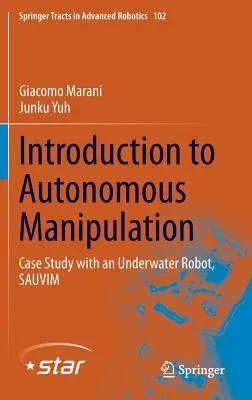"Autonomous manipulation" is a challenge in robotic technologies. It
refers to the capability of a mobile robot system with one or more
manipulators that performs intervention tasks requiring physical
contacts in unstructured environments and without continuous human
supervision. Achieving autonomous manipulation capability is a quantum
leap in robotic technologies as it is currently beyond the state of the
art in robotics.
This book addresses issues with the complexity of the problems
encountered in autonomous manipulation including representation and
modeling of robotic structures, kinematic and dynamic robotic control,
kinematic and algorithmic singularity avoidance, dynamic task priority,
workspace optimization and environment perception. Further development
in autonomous manipulation should be able to provide robust improvements
of the solutions for all of the above issues. The book provides an
extensive tract on sensory-based autonomous manipulation for
intervention tasks in unstructured environments. After presenting the
theoretical foundations for kinematic and dynamic modelling as well as
task-priority based kinematic control of multi-body systems, the work is
focused on one of the most advanced underwater vehicle-manipulator
system, SAUVIM (Semi-Autonomous Underwater Vehicle for Intervention
Missions). Solutions to the problem of target identification and
localization are proposed, a number of significant case studies are
discussed and practical examples an
d experimental/simulation results are presented. The book may inspire
the robot research community to further investigate critical issues in
autonomous manipulation and to develop robot systems that can profoundly
impact our society for the better.

